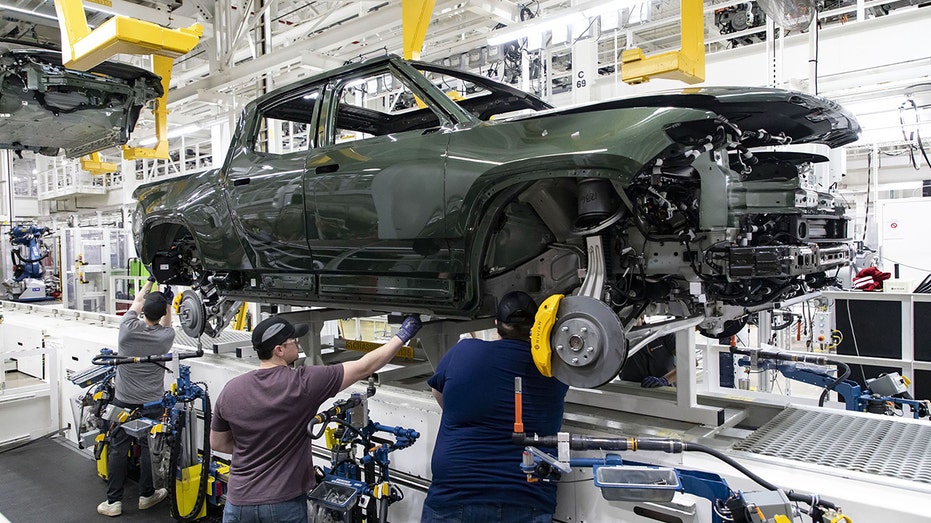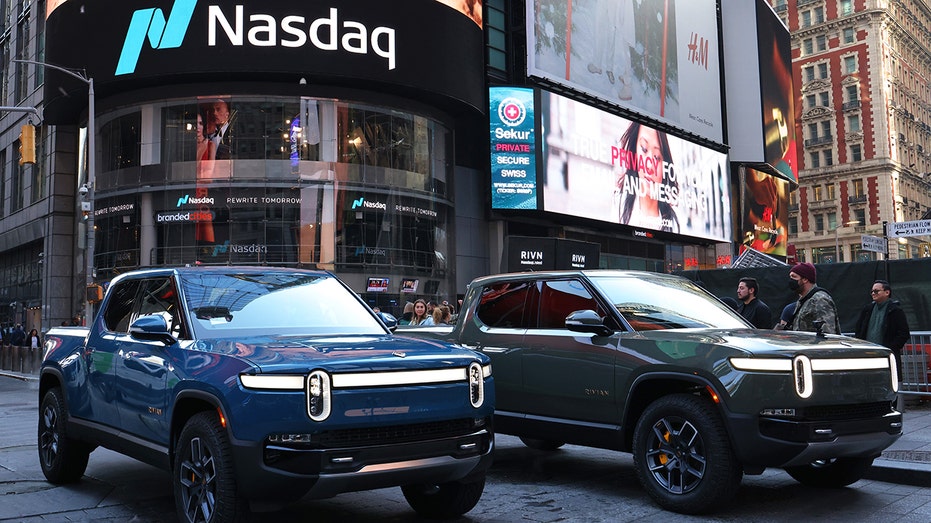Rivian’s chief lobbyist is leaving the EV startup
Jim Chen is set to be the latest in a string of executives to leave the company
Gary Gastelu tests Rivian's R1S electric SUV
Fox News Digital automotive editor Gary Gastelu joins 'Varney & Co.' to discuss Rivian Automotive beginning delivery of its R1S electric SUV.
Rivian Automotive Inc.’s chief lobbyist, Jim Chen, is departing the company, the latest high-level exit as the electric-vehicle startup works to scale up operations.
Mr. Chen, a former Tesla Inc. executive who joined Rivian in 2018, spearheaded the company’s state-by-state fight to allow direct-to-consumer sales, a core business strategy for EV-only makers such as Rivian and Tesla that don’t use traditional dealerships to sell cars. He is expected to leave Rivian at the end of February, the company said.
His departure comes in the wake of a number of other senior leaders leaving the company in recent months, including its general counsel and head of supply chain, and as Rivian seeks to trim costs to preserve cash.

Workers lower an R1T truck body onto a chassis in the assembly line, April 11, 2022, at the Rivian electric vehicle plant in Normal, Illinois. (Brian Cassella/Chicago Tribune/Tribune News Service via Getty Images) (Brian Cassella/Chicago Tribune/Tribune News Service via Getty Images / Getty Images)
A Rivian spokeswoman said Mr. Chen is leaving the company by mutual agreement and that he expressed a desire to spend more time with his family and to travel.
EVS NEED NICKEL: MINNESOTA METAL COMPANY DIGS FOR THE SOLUTION WITH NEW MINE
"I am proud of the work we have done, the influence we have had, and the team that we have built," Mr. Chen said in an emailed statement.
At Rivian, Mr. Chen was tasked with lobbying states to amend laws that force car companies to sell vehicles through franchise dealers. Mr. Chen fought similar legislative battles during his tenure at Tesla, and has said that the fight had grown more difficult at Rivian.
Mr. Chen was also in charge of Rivian’s federal lobbying efforts and regulatory affairs, running a small team that would frequently travel to state houses around the country, as well as meet with lawmakers on Capitol Hill.

FILE - Gov. Brian Kemp walks past a Rivian electric truck after announcing that electric truck maker Rivian Automotive will build a $5 billion battery and assembly plant east of Atlanta projected to employ 7,500 workers, Thursday, Dec. 16, 2021, in A (AP / AP Images)
The move comes at a critical time for the startup’s relations with Washington, which has thrown its support behind EVs but also put new restrictions in place that make it harder for some models to qualify for government tax credits.
| Ticker | Security | Last | Change | Change % |
|---|---|---|---|---|
| RIVN | RIVIAN AUTOMOTIVE INC. | 14.80 | +1.07 | +7.79% |
| TSLA | TESLA INC. | 411.11 | +13.90 | +3.50% |
Under new rules adopted as part of last year’s Inflation Reduction Act, only electric trucks and SUVs that cost less than $80,000 qualify for federal tax credits, a change that the Irvine, Calif.-based startup has said puts it at a disadvantage.
WYOMING LEGISLATORS PROPOSE BILL TO PHASE OUT EVS BY 2035
While both Rivian’s R1T pickup and R1S SUV have a starting price below $80,000, the company has said most of its vehicles sell for more than that amount when features and other options are added on.
Rivian, which went public in November 2021 with a valuation of roughly $86 billion in its first day of trading, has struggled with a number of growing pains lately, including narrowly missing its production targets last year at its sole plant in Normal, Ill.

NEW YORK, NEW YORK - NOVEMBER 10: Rivian electric trucks are seen parked near the Nasdaq MarketSite building in Times Square on November 10, 2021 in New York City. Rivian, an electric truck maker backed by Amazon and Ford, made its debut at Nasdaq go ((Photo by Michael M. Santiago/Getty Images) / Getty Images)
The company’s share price has fallen 76% since its splashy debut, and its cash pile has steadily decreased to $13.8 billion at the end of September, the latest period for which information is available.
Rivian recently postponed the launch of a cheaper model, dubbed the R2, by a year to 2026. Rivian’s Chief Executive RJ Scaringe said that the delay was to give a planned plant in Georgia enough time to prepare for the start of production.
The EV maker has also had some notable turnover in its upper ranks, including replacing its head of manufacturing and chief operating officer within the last year. In July, Rivian revealed plans to lay off 6% of its 14,000-employee workforce, a cash-saving move aimed at responding to inflationary pressures and tightening capital markets.
Mr. Chen became one of the foremost advocates for legal changes to allow direct-to-consumer sales by car makers.
The cowboy-boot-wearing child of Taiwanese immigrants was a regular visitor to statehouses around the country and fought some of the earliest legislative battles over direct vehicle sales while at Tesla. Mr. Chen said in an interview last summer that he left Tesla after nearly six years after becoming burned out by the pace of work.
Meanwhile, the fight between car makers and car dealer associations over who can sell a vehicle has grown fiercer. At Tesla, Mr. Chen was able to forge compromise deals that allowed that car maker to operate company-owned stores; he found the dealers less amenable to negotiations while at Rivian.
CLICK HERE TO GET THE FOX BUSINESS APP
In Georgia, where Mr. Chen helped Tesla win the ability to sell vehicles directly to consumers, he faced stiff opposition from the state legislature despite Rivian’s plan to build a $5 billion factory in the state.
EV startups have been able to sell their vehicles through company-owned stores in Mississippi, but proposed legislation would prohibit them from doing so except in narrow circumstances.
Rivian executives have said opening more company-owned stores is a key part of its retail strategy and is needed to lower costs and boost deliveries to customers.




















